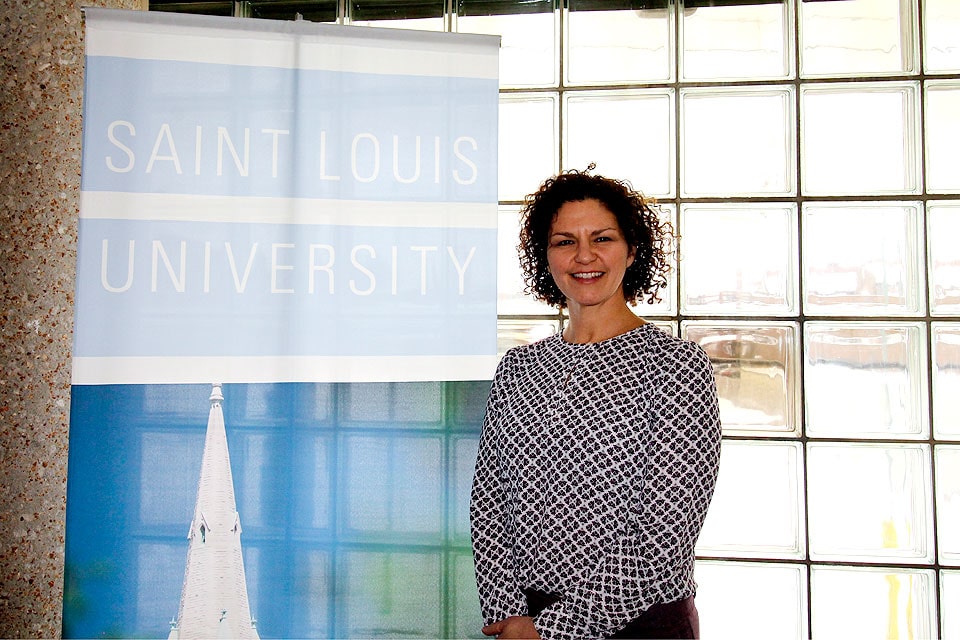SLU Research Examines Factors Impacting Organ Donation Registrations
As the shortage of transplantable organs leads to growing numbers of people on waiting lists, Saint Louis University researchers found economic status, education and community location impact the choice to register to be an organ donor.
They used spatial analysis techniques to help examine sociodemographic differences in organ donor registration rates in Missouri. Their research has helped spur changes to outreach efforts by the Missouri Department of Health and Seniors Services, Donate Life Missouri and the Midwest Transplant Network in order to adjust patterns of organ donation registration across the state.
A July 2018 study by Enbal Shacham, Ph.D., associate professor of behavioral science and health education in Saint Louis University’s College for Public Health and Social Justice, examined organ donor registration data from 173 licensing (DMV) offices in Missouri. The findings are published in the American Journal of Transplantation.
Currently there are more than 100,000 people waiting to receive an organ in the U.S. In 2017, approximately 34,000 organ transplants were performed and around 16,000 donors recovered with transplants occurring for each of the most common types of organ transplants: kidney, liver, heart and lung.
Shacham’s study found that organ registration rates across all DMV locations ranged from 19 to 63 percent across the state. Female-head of households, individuals who were unemployed, and people living below the poverty threshold were all found significantly less likely to gift an organ than those who were employed, had two-headed households, and overall had higher incomes.
Through spatial analysis, the team mapped and statistically compared patterns of donation registration in ZIP codes. Researchers used survey data from the United States Census Bureau to describe sociodemographic characteristics of specific areas.
Shacham and her co-authors’ findings suggest that race does not play a significant role in the variation in donor registration rates. Rather, when more people in a ZIP code received public benefits like SNAP (Supplemental Nutrition Assistant Program), they were less likely to register as organ donors.
The study found that people living in areas where a large percentage of residents were of low socioeconomic status were not likely to gift an organ.
“Individuals experience a stressful environment as they are posed with the question if they would register to be an organ donor,” Shacham said. “While they are trying to pay their property taxes, get license plates or driver’s license, it is likely that asking one more request at that time is too burdensome, especially among those who are already stretched and have difficulty meeting their basic needs.“
The study’s results, she said, also identified a need for innovative methods to register to become an organ donor and questioned whether the DMV is the best venue to encourage this practice.
“Dealing with the stress associated with long waits, crowded environments, and questionable customer service, people cannot respond in a way that is thoughtful and meaningful in the context of a DMV,” Shacham explained.
The study’s findings have helped adjust the patterns of organ donor registration outreach efforts. In an effort to reach a broad population and provide convenient and private registration methods, organizations such as the Missouri Department of Health and Senior Services, Donate Life Missouri, and the Midwest Transplant Network offer mail-in and online registration forms. Providing easy-to-read information and multiple registration options to lower-income state residents gradually increases awareness and addresses concerns.
These organizations also provide online resources such as FAQs, myths and misconceptions information, and brochures in multiple languages to address organ donation concerns of residents from all socioeconomic groups. Outreach to improve organ donor registration rates is no longer limited to the DMV. Instead, promotional campaigns are held via radio/tv ads, at health and community fairs, within healthcare organizations, and through the use of social media.
Shacham headed a study team that included Ellen K. Barnidge, Ph.D., associate professor of behavioral science and health education; Travis Loux, Ph.D., associate professor of biostatistics; SLU doctoral student Daphne Lew; and SLU alumna Lianette Pappaterra. All are listed as co-authors on the study.
The Saint Louis University College for Public Health and Social Justice is the only academic unit of its kind, studying social, environmental and physical influences that together determine the health and well-being of people and communities. It also is the only accredited school or college of public health among nearly 250 Catholic institutions of higher education in the United States.
Guided by a mission of social justice and focus on finding innovative and collaborative solutions for complex health problems, the College offers nationally recognized programs in public health, social work, health administration, applied behavior analysis, and criminology and criminal justice.
Story by Diane Chatman, College for Public Health and Social Justice Communications and Amelia Flood, University Marketing and Communications


















